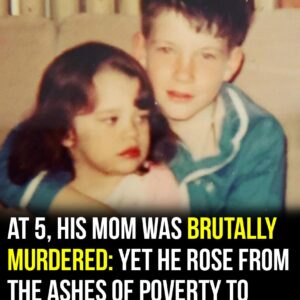Beneath the rumble of elevated trains along Roosevelt Avenue in Queens, residents say a “red-light district” has quietly taken root. Once a bustling hub for immigrant families, lined with small businesses and community shops, the corridor is now notorious for brothels operating in plain sight—often disguised as bodegas or massage parlors.
Locals argue the transformation has pushed their neighborhood to the breaking point. They believe federal intervention is now necessary, as local police struggle to contain a problem that grows more entrenched with each passing year.
Years of Frustration Boil Over
Community leaders say they have endured a cycle of failed crackdowns and half-measures. In frustration, a coalition called Restore Roosevelt Avenue bypassed their local congresswoman, Rep. Alexandria Ocasio-Cortez, and appealed directly to FBI Director Kash Patel, urging him to deploy federal resources. The group has staged protests outside suspected brothels, accusing gangs of forcing women into prostitution and using the district as an open-air marketplace for drugs.
“This is no longer just a local issue—it’s organized crime,” said Rosa Sanchez, a spokesperson for the coalition. “Our kids shouldn’t have to see women being forced to sell their bodies.”
A Persistent Problem Despite Arrests
Police say they have made more than 350 arrests related to prostitution in the neighborhood this year alone. But residents argue these numbers barely scratch the surface. Criminal networks, they say, simply replace those arrested with new recruits, leaving the illicit industry intact.
Families describe being forced to alter their daily routines, steering children away from blocks where solicitation occurs openly—even near schools. Parents worry about the long-term effects on their children’s mental health, saying the exposure to exploitation and violence has already left scars.
Organized Crime at the Core
The scale of the issue became more apparent in April, when federal agents arrested eight alleged members of the 18th Street gang, a violent organization with roots in Central America. Community leaders warn, however, that dismantling one group does little to address the broader networks at play.
They point to other criminal organizations, such as Tren de Aragua from Venezuela and Chinese crime syndicates, as evidence that Roosevelt Avenue has become a hub for international trafficking operations. Only a sweeping federal operation under racketeering and human trafficking statutes, they argue, can dismantle these entrenched systems.
Political Fault Lines
The crisis has also exposed divisions among elected officials. Rep. Ocasio-Cortez has requested federal funds for nonprofits addressing trafficking, but critics in her district say her response has been too limited in scope. They contrast her approach with Rep. Grace Meng, who has pressed for federal funding tied directly to law enforcement and closer coordination with the NYPD.
The differing strategies have intensified scrutiny of Ocasio-Cortez’s priorities, with some residents accusing her of being out of touch with the urgency of the problem.
A Call for Victim-Centered Solutions
Despite calls for tougher enforcement, residents and advocates stress that trafficking victims must not be criminalized. Instead, they argue, resources should focus on dismantling the traffickers’ networks while providing rehabilitation and support services for exploited women.
“Punishing the victims only keeps the cycle going,” Sanchez said. “We need to target the people making money off their suffering.”
A Neighborhood at a Crossroads
The struggles along Roosevelt Avenue reflect far broader challenges tied to immigration, organized crime, and the capacity of urban governance to protect vulnerable communities. For the families who live there, the issue is not abstract—it shapes daily life.
They no longer want to remain silent. Instead, they are demanding that their community receive the kind of attention, resources, and protection that only a coordinated federal response can deliver.




